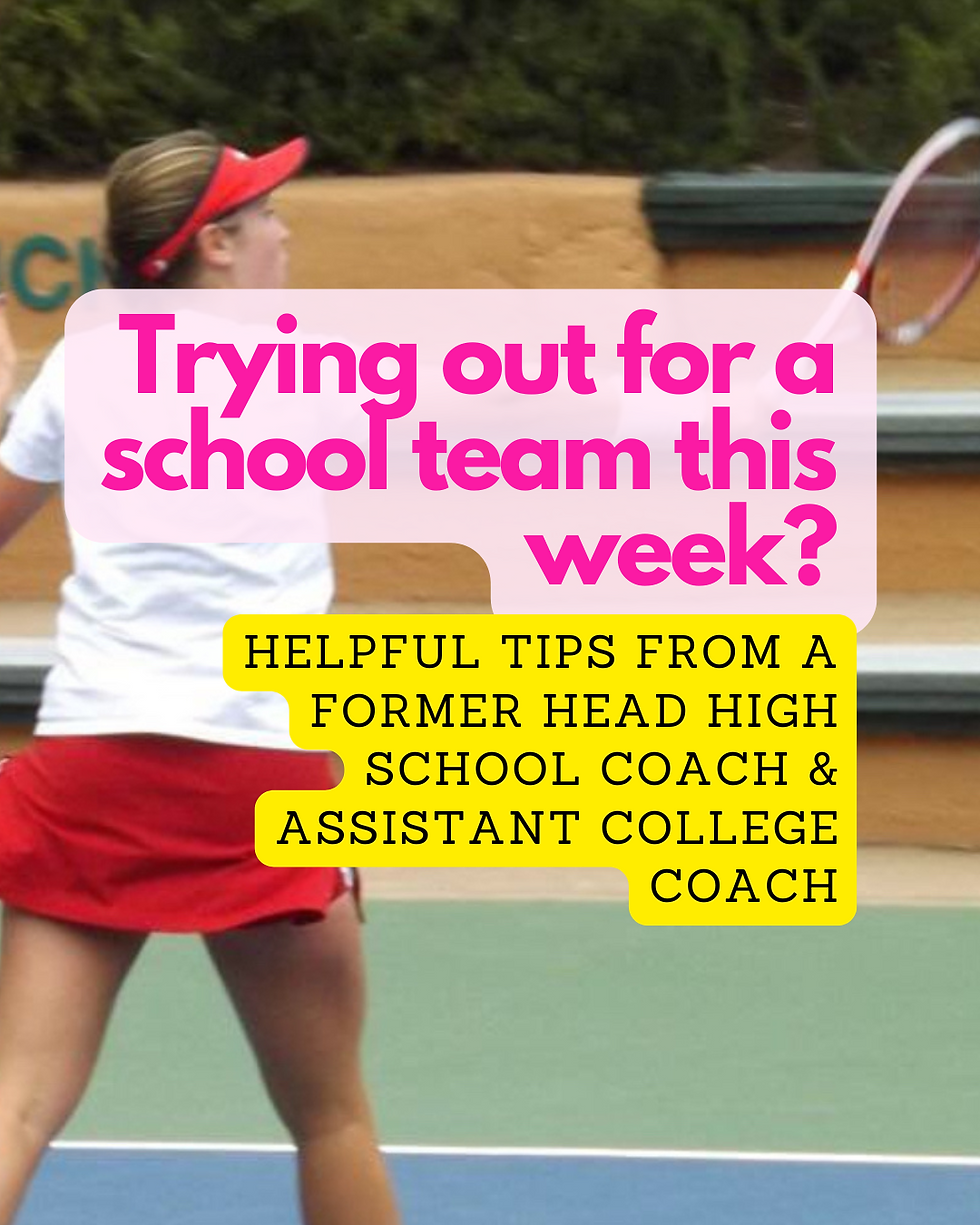Still focused on technique when you should be competing?
- Coach Sav

- Aug 25, 2025
- 3 min read

Let’s talk about this, because it’s not emphasized enough. And I’ll be honest: it’s something I CONSTANTLY have to work on myself. Even knowing that it’s not helpful, I still catch myself falling into this loop.
Before I dive in, I want to highlight the importance of intentional practice. Technique and tactical patterns matter. If you don’t practice specific plays (like serving out wide & hitting the next ball into the open court) you can’t expect that decision to “just happen” automatically during competition.
The same is true in any sport: if a basketball player doesn’t rehearse transition plays in practice, they won’t suddenly flow into them under game pressure.
That’s the point of practice & drilling, to build understanding, habits, and muscle memory. So yes, develop your technique and rehearse match patterns deliberately.
But once you step into competition, the goal changes.
Coaching Brain vs. Player Brain
Here’s the distinction I use with athletes:
Coaching Brain = an internal focus. Thinking about how to do something, like technique, mechanics, or body movements.
Player Brain = an external focus. Competing for what to do, think strategy, tactics, & decision-making.
Research backs this up.
Weinberg & Gould (2023) explain that an internal focus of attention (on mechanics like “keep your elbow up” or “bend your knees”) often disrupts automatic performance, especially under pressure. In contrast, an external focus (e.g., aiming for a target or focusing on a strategic game plan) frees your body to rely on learned skills. Williams & Krane (2021) add that athletes enter the “zone” when their attention is outward and fluid, not inward and controlled.
The Cost of Coaching Brain in Competition
When you get stuck in coaching brain during play, here’s what happens:
👉 You get into your head
👉 You get tight
👉 You play safe
👉 You lose your fire
👉 You lose the fight
Technique is supposed to run in the background. That’s why you train.
Competition is where you:
👉 Compete
👉 Problem-solve
👉 Fight
What You Can Do NOW
#1 Ask yourself:
“What does it look like to compete without coaching brain?”
“What do I need to practice now so I can trust my technique later?”
#2 Visualize it.
See yourself competing freely: trusting your strokes, staying tactical, focusing on winning plays.
#3 Find a cue word/phrase.
Something short & powerful to “switch brains.”
Examples: “Compete,” “Play free,” “Attack”
This works because, as Weinberg & Gould (2023) note, self-talk and attentional control strategies help athletes regulate focus and prevent overthinking. By using a cue, you redirect your attention outward and keep your performance automatic.
The Reset Routine
Even the best competitors fall into coaching brain mid-match. The key is resetting fast. Here’s how:
Breathe & Move. Full exhale, bounce, shake it out.
Cue Word. Say your phrase: “Compete!”
Pick a Target/Strategy. Shift attention outward to your next play.
Trust Your Training. Let your muscle memory take over.
This works because physical resets (breathing, movement) release tension, and cognitive resets (cue + strategy) re-anchor your attention where it matters: competing.
Perfection doesn't win. Competing does. 🧠💪
Weinberg & Gould (2023) highlight that elite performance comes when athletes trust their skills and stay externally focused. This is the “zone”, where technique flows naturally, decisions come fast, and competitors play free.
So next time you catch yourself in coaching brain, stop.
Reset.
Switch to player brain. Because that’s where the fight (and the fun) really is!
Want help learning how to switch into player brain under pressure?
I work with athletes on building the mental tools to compete with confidence & freedom!
Book a free 20-minute consult and let’s talk through it.
References:
Weinberg, R. S., & Gould, D. (2023). Foundations of Sport and Exercise Psychology (8th ed.). Human Kinetics.
Williams, J. M., & Krane, V. (2021). Applied Sport Psychology: Personal Growth to Peak Performance (8th ed.). McGraw-Hill Education.



Comments